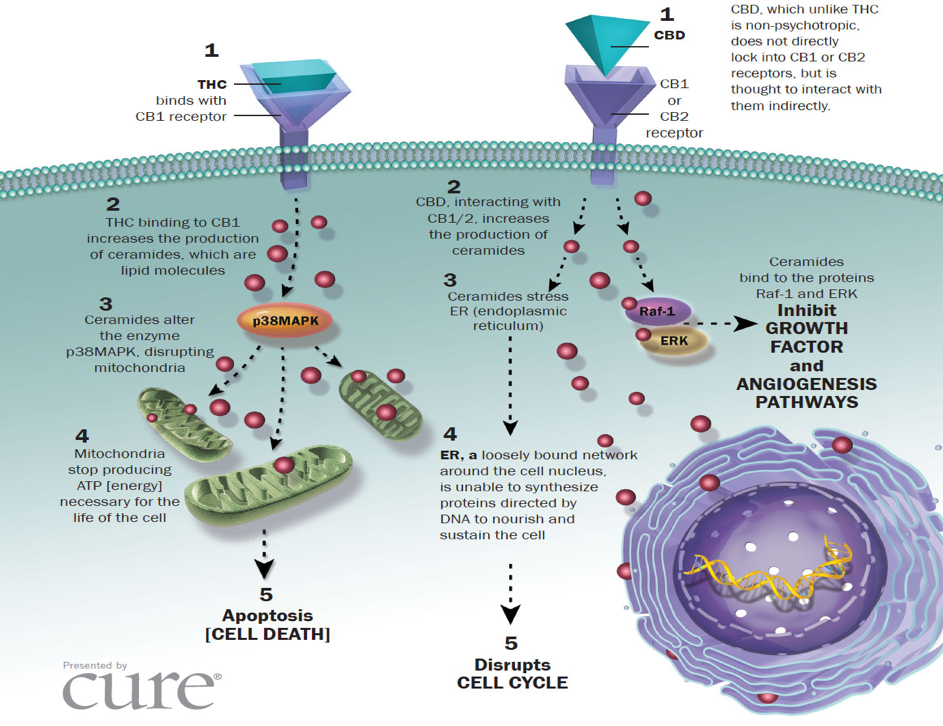Health benefits of CBD oil that nobody talks about

Cannabidiol, also known as CBD, is a cannabis compound which is completely non-psychoactive. This means that it does not change the state of mind of the person who uses it. However, it does appear to produce significant changes in the body and has been found to have medical benefits. It is emerging as a powerful medicinal substance with anti-inflammatory properties and the ability to help several diseases which were previously untreatable. CBD can help fight cancer and bowel diseases, it cures symptoms of schizophrenia, and even reduces anxiety and sleep disorders. People are unaware of a number of health benefits of CBD.
Research shows that CBD products are actually helpful at reducing many ailments. Such diverse ailments that they seem to be unrelated, in fact… but they are not. Emerging research shows that each of these ailments may be related to dysregulation of the endocannabinoid system, or ECS for short. The “key and lock” metaphor is often used to describe this process. The human body possesses specific binding sites (“locks”) on the surface of many cell types, and our body produces several endocannabinoids (“keys”) that bind to these cannabinoid receptors (CB) to activate or “unlock” them.
Health benefits of CBD oil that nobody talks about:
1. CBD Reduces Inflammation and Autoimmunity
CBD serves as a therapeutic medium for a variety of inflammatory and pain-associated disorders due to its anti-inflammatory properties.
Inflammation has always been a subject for researchers when it comes to finding a therapeutic solution. CBD has a prominent way of interacting with the endocannabinoid system that appears very beneficial for the therapeutic applications which are related to inflammation.
2. CBD May Protect Against Neurodegenerative Diseases
CBD is said to prevent toxic effects of Neurotransmitter Glutamate and Radical Oxygen Species in the brain, which results in preventing brain cell death.
CBD has antioxidant activity much greater than that of vitamin C or vitamin E. CBD also protects brain cells from beta-amyloid toxicity, making it a potential therapy in Alzheimer’s and Parkinson’s diseases. It may also protect the brain in cases where the blood flow is reduced.
Some studies have shown improvement in patients suffering from Parkinson’s disease treated with 100 to 600 mg/day of CBD over a 6-week period.
3. CBD Relieves Nausea and Increases Appetite
CBD is said to relieve nausea and vomiting. Researchers found that CBD in low amounts decreases nausea and vomiting produced by toxic drugs, but in high doses, it can increase nausea or has no effect.
THC is a drug used to treat nausea and vomiting in human patients, but more clinical studies prove that CBD is more efficient in doing so.
CBD also helps in increasing the appetite by binding the cannabinoid receptors in the body.
CBD greatly helps to reduce food sensitivities as well.
4. CBD Promotes Bone Growth
CBD does not only increase the bone growth but also the bone density. This is all because of the endocannabinoid system. Cannabinoids work on receptors in the endocannabinoid system to produce bone formations. It is also found that broken limbs are healed much faster when treated with CBD.
5. CBD Helps In Treating Anxiety & Insomnia
CBD for anxiety is already a well-known benefit.
The researchers point to studies showing that CBD may reduce anxiety behaviors in disorders such as:
- post-traumatic stress disorder
- general anxiety disorder
- panic disorder
- social anxiety disorder
- obsessive-compulsive disorder
The review notes that current medications for these disorders can lead to additional symptoms and side effects and that people may stop taking the drugs because of these unwanted effects. CBD has not shown any adverse effects in these cases to date, and the researchers call for CBD to be studied as a potential treatment method -Medical News Today
As CBD possesses the ability to reduce anxiety, it can be helpful in reducing sleep difficulties and also improving the sleep quality. CBD helps in increasing the overall sleep amounts and improves insomnia as well. CBD has been shown to reduce insomnia in people who suffer from chronic pain.
If CBD is given in smaller doses, it can also stimulate alertness and reduces daytime sleepiness, which is important for daytime performance and for the strength and consistency of the sleep-wake cycle of an individual.
6. CBD May Help with Quitting Smoking
Research has found that inhaling CBD for a few weeks can possibly reduce the number of cigarettes smoked by almost 40%, without increasing the cravings for nicotine.
CBD is very easily available worldwide.
7. Cannabidiol Can Provide Treatment for Acne
CBD decreases the lipid synthesis and proliferation of sebaceous glands on the human face and also possesses an anti-inflammatory effect on sebaceous glands. Therefore, it can potentially act as a therapeutic agent for the treatment of acne vulgaris.
8. Cannabidiol Lowers the Incidence of Diabetes
CBD can impede and delay the destruction of insulin-producing cells present in the pancreas and also the production of inflammatory cytokines in diabetics.
CBD has found to reduce the inflammation of pancreatic cells and improves the glucose tolerance. It also increases the insulin sensitivity for type 1 diabetic individuals so that there is a possibility that less insulin is needed for the management. It also makes the fluctuation of the blood-glucose level more manageable.
article contributed by Kathy T. Cooley
HFI editorial staff did further research to gain a better understanding of how CBD oil affects the human body.
Research shows that CBD products are actually helpful at reducing many ailments. Such diverse ailments that they seem to be unrelated, in fact… but they are not. Emerging research shows that each of these ailments may be related to dysregulation of the endocannabinoid system, or ECS for short. The “key and lock” metaphor is often used to describe this process. The human body possesses specific binding sites (“locks”) on the surface of many cell types, and our body produces several endocannabinoids (“keys”) that bind to these cannabinoid receptors (CB) to activate or “unlock” them.
How CBD works
All cannabinoids, including CBD, attach themselves to certain receptors in the body to produce their effects.
The human body produces certain cannabinoids on its own. It has two receptors for cannabinoids, called CB1 receptors and CB2 receptors.
CB1 receptors are found all around the body, but many of them are in the brain.
The CB1 receptors in the brain deal with coordination and movement, pain, emotions and mood, thinking, appetite, and memories, among others. THC attaches to these receptors.
CB2 receptors are more common in the immune system. They affect inflammation and pain.
It used to be thought that CBD acts on these CB2 receptors, but it appears now that CBD does not act on either receptor directly. Instead, it seems to influence the body to use more of its own cannabinoids.

FURTHER READING:
Everything you need to know about CBD oil https://www.medicalnewstoday.com/articles/317221.php
CBD for Seizures and Epilepsy – Treatment with CBD Hemp Oil. https://cbdsky.com/cbd-for-seizures/
Best of CBD Oil. http://bestofcbdoil.com/
How Does CBD Affect Bone Growth? | Skeletal …. https://infinitecbd.com/cbd-bone-growth/
Diabetes and Marijuana: A Possible Treatment?. https://www.thediabetescouncil.com/diabetes-and-marijuana-a-possible-treatment/






